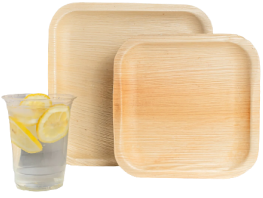Moving To A Zero-Waste Kitchen: 5 Easy Steps

Sustainability can start in your kitchens. And looking at your kitchen bin can inspire you to do good by the planet.
We often preach about a sustainable lifestyle. About how small actions like switching to plant-based can go a long way to make the world a better and safer place. But did you know that sustainability can start in your kitchens? Several restaurants have started following the trend of Zero-Waste Kitchen by reducing food wastage and using eco-friendly products in their kitchens.
At a personal level, you can, too, move towards reducing waste in the kitchen through seven simple steps. In fact, apart from just ensuring that you eat healthy, a green kitchen can also be great for the planet.
With that in mind, here are 5 easy steps through which you can move towards a zero-waste kitchen smoothly.
Using Your Veggies & Fruits To The Fullest
Did you know that almost 33% of food waste consists of trimmings and peels? So, one way to decrease food waste is by using all components of fruits or vegetables.
To get started, many experts recommend getting a scrubber. In fact, there are many vegetables that don't need to be peeled. Overall, it's more about using every component optimally. For instance, you can save the stems of broccoli and roast them with mashed potatoes for a filling breakfast.
Moreover, the seeds of many fruits can be a great addition to several chutneys or salad dressings as well. Apart from this being cost-effective, it also offers proper nutrition and helps you move towards a zero-waste kitchen.
Growing Herbs at Home
When was the last time you used just one rosemary sprig in a recipe, and the remaining was left to rot in the refrigerator because you ran out of ideas for how to use it? Drying and storing the remaining rosemary and other herbs for later use is advisable rather than throwing them in the trash. Even better, grow some more popular herbs on your own property.
They only take up a little room and are easy to grow, too. Utilize them to your fullest capacity and distribute them to family and friends as well.
Repurposing Leftovers
How often have you ordered a delivery to your home and thrown the leftovers in the trash? Way too many, right? It's a known fact that most types of food taste better the next day! There are numerous ways to repurpose a dish if you don't want to serve it in the same shape the following day. For instance, hashbrown leftovers can be combined with milk the next day to make the ideal cheesy mashed potatoes.
Going Seasonal
You must have heard the advice to eat seasonally from your doctor or nutritionist frequently. Eating fruits that are in season and locally farmed is healthier for us for various reasons. Of course, one of the most important is health. According to science, there is science behind eating in season, and if nature is giving you access to certain produce at a particular time, it is because your body requires that type of nutrient at that point in the year. Additionally, it benefits the environment because all that transportation and storage would have resulted in higher greenhouse gas emissions.
Donating & Recycling
Not only do the unusable portions of fruits and vegetables wind up in the trash, but also empty milk cartons, plastic lentil packets, sugar and spice powders, etc. It might not seem like much from a single household regularly, but consider how much trash one apartment block produces in a single day. A lot, right? But there are additional ways to manage that trash. Tetra Pack cartons that have been used, cleaned, and flattened are requested by carton collection centers in the area so that they can recycle them and turn them into coasters, pen stands, and even park benches.
Zero-Waste Kitchens with EcoSoul
Recycling used tetra-packs, repurposing leftovers and using all parts of vegetables can be a great way towards sustainable kitchens. However, you can also switch to eco-friendly tableware and kitchenware to make a greater difference.
Apart from being non-toxic and plastic-free, our home essentials like plant-based kitchenware, tableware and trash bags can be a great way to practice sustainability while adding modern aesthetics to your kitchens.





